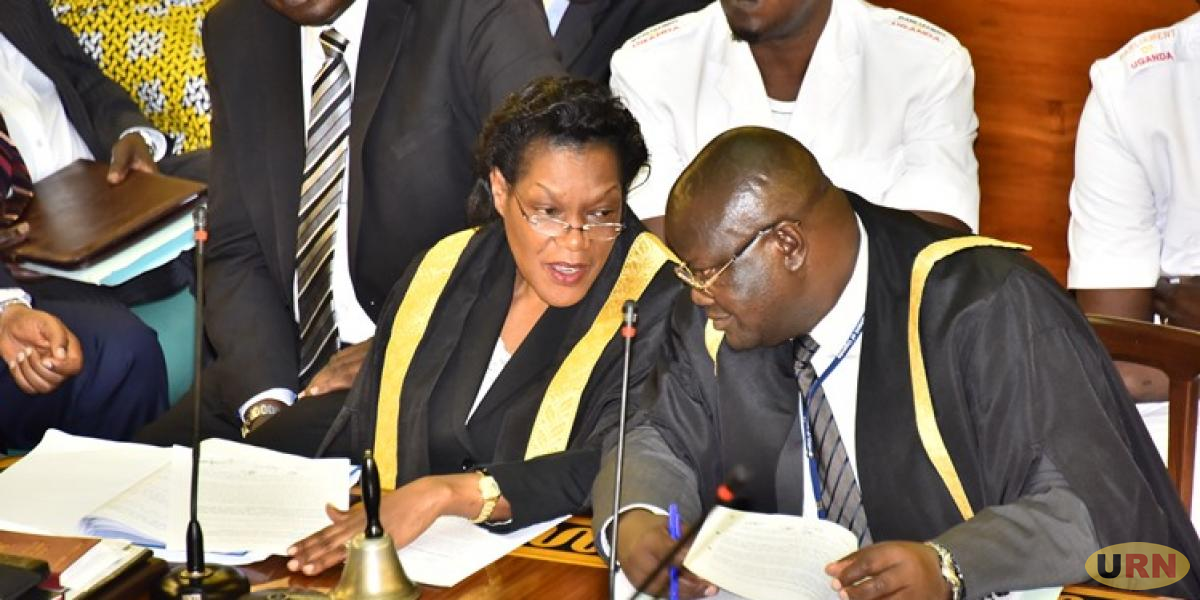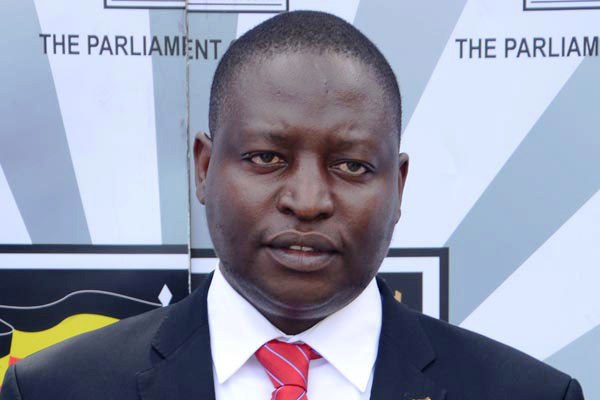UNBS Executive Director, David Livingstone Ebiru swearing an oath before Parliament’s Committee on Tourism, Trade and Industries. Photo credit: Dominic Ochola
The Tourism, Trade and Industries Committee of parliament has slammed the Uganda National Bureau of Standards – UNBS for failing to protect consumers against the proliferation of fake goods on the market.
UNBS is mandated to enforce standards in the protection of public health, safety and the environment against dangerous, counterfeit and substandard products. The Bureau also is mandated to ensure fairness in trade and precision in the industry through reliable measurement systems; strengthening Uganda’s economy by enhancing the competitiveness of local industries and promotion of quality exports through standardization.
However, the Mbarara City South Division Member of parliament and Committee Chairperson, Mwine Mpaka, argues that the entity does not have the capacity to protect Ugandans from consuming sub-standard goods. He cited understaffing and the time UNBS takes to test one product, approximately four days.
Mwine says UNBS staff at the border entry points work for only 10 hours and can’t mount 24 hour-surveillance and vigilance thus giving leeway for substandard goods to enter the country. He made the comments while interfacing with UNBS officials on Tuesday. The committee summoned the UNBS officials to respond to concerns about the rampant infiltration of fake products on the Ugandan market.
Substandard products consist of both locally manufactured and imported products. The proliferation of counterfeit products on the market results in revenue loss to the government, infringement on intellectual property rights, health and safety risks to consumers among others.
For instance, in 2020, UNBS destroyed 232 metric tonnes of substandard goods it impounded across the country worth Shillings 2.5 billion. Francis Mwijukye Mwijukye, the Buhweju County MP estimates that the country risks about Shillings 6 trillion of the Shillings 41 trillion annual budget in sub-standard and counterfeit products due to UNBS’ under capacity.
Mwijukye first raised the issue of the importation and sale of counterfeit goods on the Uganda market on the floor of the House on March 2, 2022. He attributed it to weak regulatory mechanisms and corruption, which jeopardizes innovation and undermines legitimate business.
But David Livingstone Ebiru, the UNBS Executive Director refuted the claims, saying that the Bureau has been operating the Pre-Export Verification of Conformity to Standards Program (PVoC) since 2009, which has significantly reduced substandard imported products.
Ebiru told URN that despite the implementation of the programme, the Bureau has witnessed significant nonconformity of locally manufactured products especially those produced by Micro, Small and Medium Enterprises – MSMEs.
Ebiro also pointed out that the Bureau faces the challenge of inadequate staffing to cover gazetted border entry points, smuggling, under declaration of goods and failure to register and formalise businesses by local enterprises.
David Bahati, the Minister of State for Trade, Industry and Co-operatives, says that the Ministry is drafting the Counterfeit and Consumer Protection Bill to protect consumers and ensure that products by Ugandan companies and those imported meet the requisite standards.
The MPs were also concerned that while there are existing laws such as the East African Community Customs Management Act to curb counterfeit products on the market, stringent implementation has failed thus keeping such products in circulation.
Some of the products include foodstuffs, iron sheets, cosmetics, building materials like cement, toilet paper, polythene bags, electronics and alcohol, solar panels, drugs, chemicals, among others. According to UNBS, about 54 per cent of products on the market are either fake or counterfeits which places them at a high probability of being substandard.
-URN





